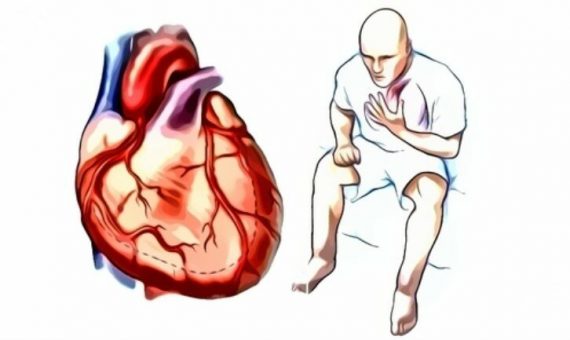Chronic heart failure (CHF) is a cardiac-related disorder of (pumping) function with corresponding symptoms, consisting in the inability of the circulatory system to deliver to organs and tissues the amount of blood necessary for their normal functioning.

Thus, this is a disproportion between the state of blood circulation and metabolism, which increases with the increase in the activity of life processes. From a modern clinical point of view, CHF is a disease with a complex of characteristic symptoms (shortness of breath, fatigue and decreased physical activity, edema, etc.), which are associated with inadequate perfusion of organs and tissues at rest or during exercise and often with fluid retention in the body.
Chronic heart failure is characterized by periodic episodes of exacerbation (decompensation), manifested by a sudden or, more often, gradual increase in symptoms and signs of CHF.
Chronic heart failure - causes.
CHF can develop against the background of almost any disease of the cardiovascular system, but the main three are the following supernosological forms: coronary artery disease, arterial hypertension and heart defects.
A few words need to be said about dilated cardiomyopathy (DCM) as a cause of CHF.
DCM is a rather rare disease of unspecified etiology, which develops at a relatively young age and quickly leads to cardiac decompensation.
The easiest way to determine FC in patients is by a 6-minute walking distance.
Thus, the functional classification of CHF reflects the ability of patients to perform physical activity and outlines the degree of changes in the functional reserves of the body.
This is especially significant when assessing the dynamics of patients' condition.
Clinical manifestations. In most patients, left heart failure primarily develops. The most common complaint is inspiratory dyspnea, initially associated with exercise and progressing to orthopnea, paroxysmal postural dyspnea, and dyspnea at rest. Complaints of nonproductive cough and nocturia are typical. Patients with CHF note weakness and fatigue, which are the result of reduced blood supply to skeletal muscles and the central nervous system.
At Dr. Maksudova’s clinic, highly qualified specialists deal with problems related to CHF.

0 Comments